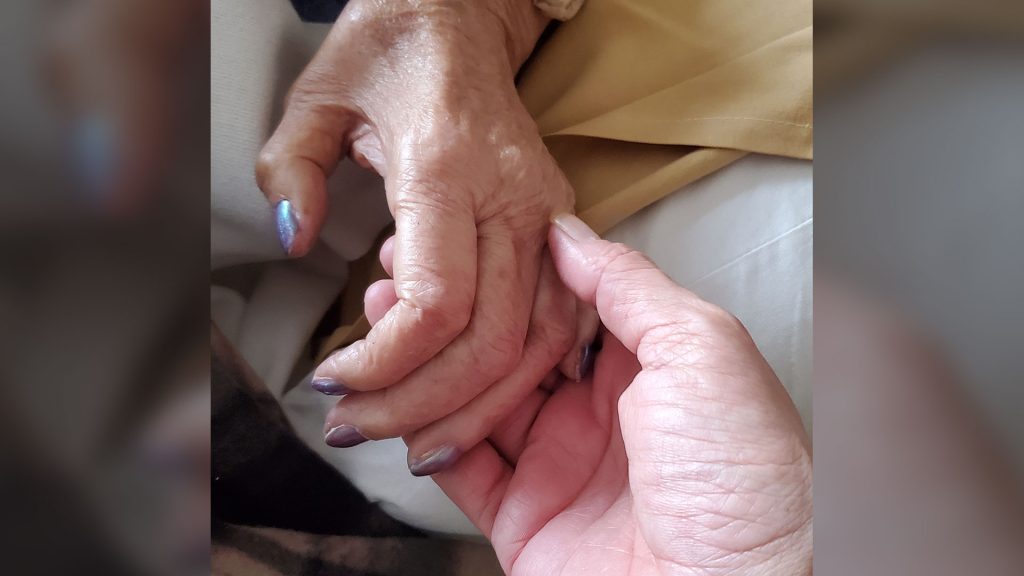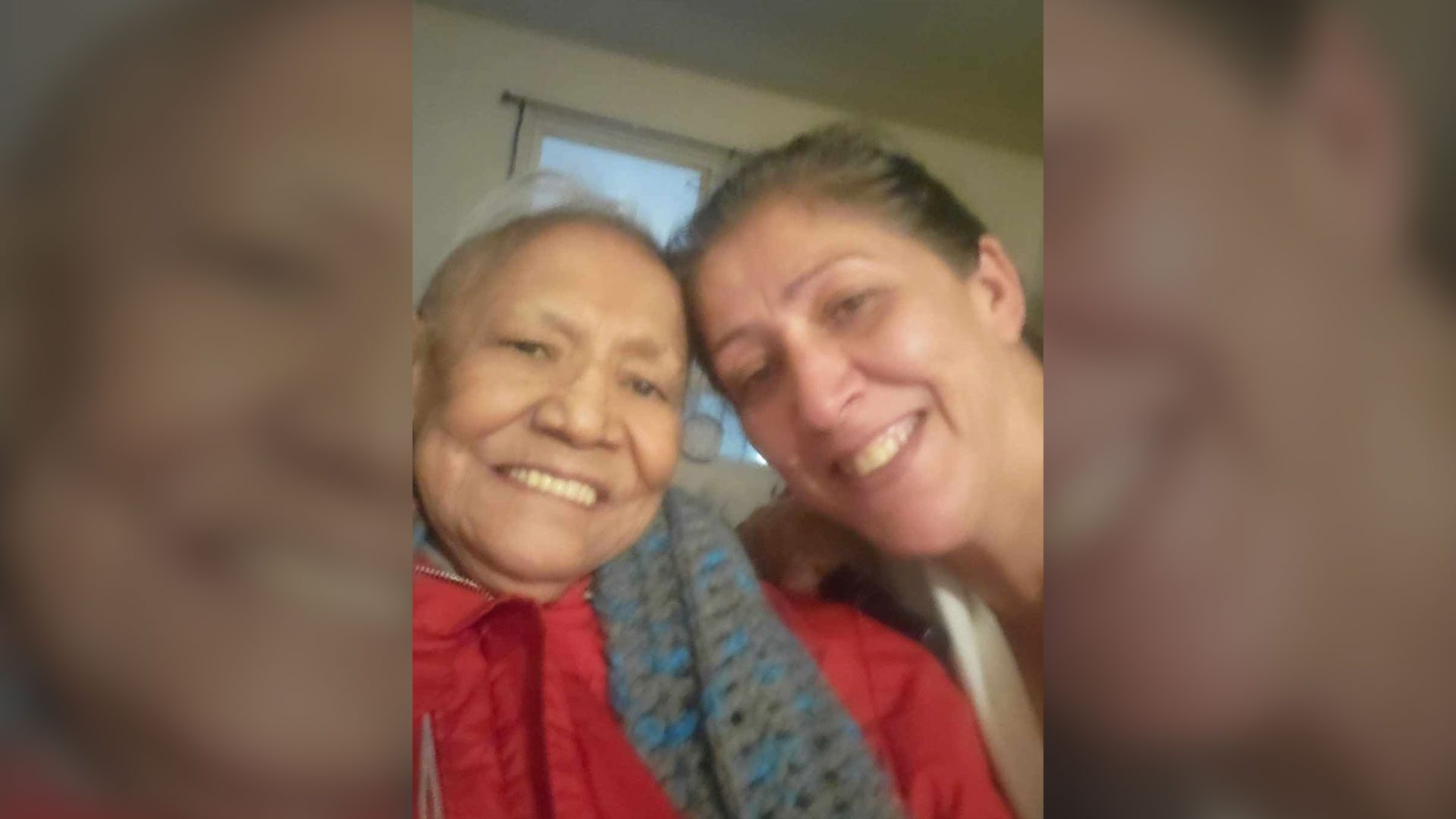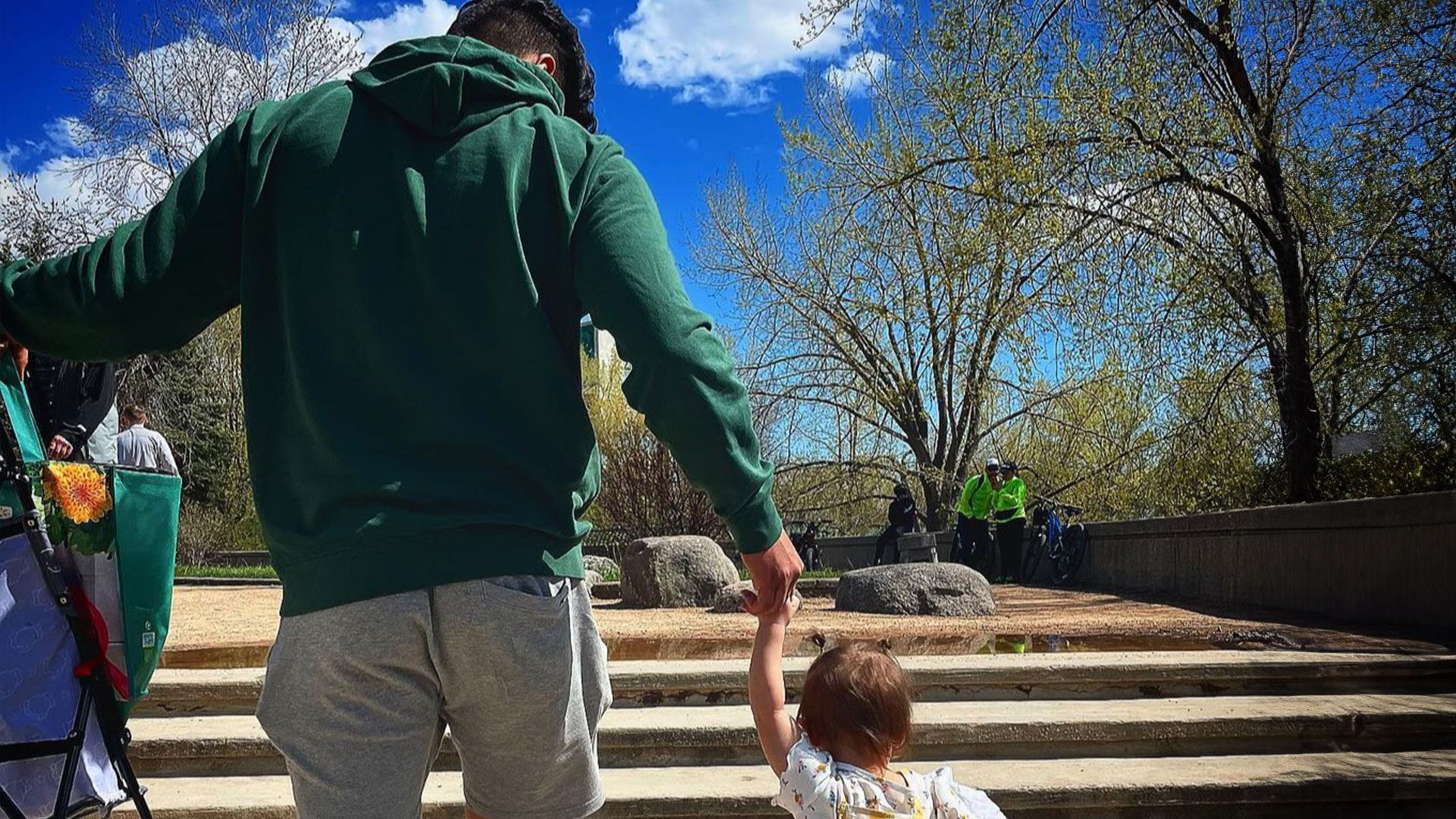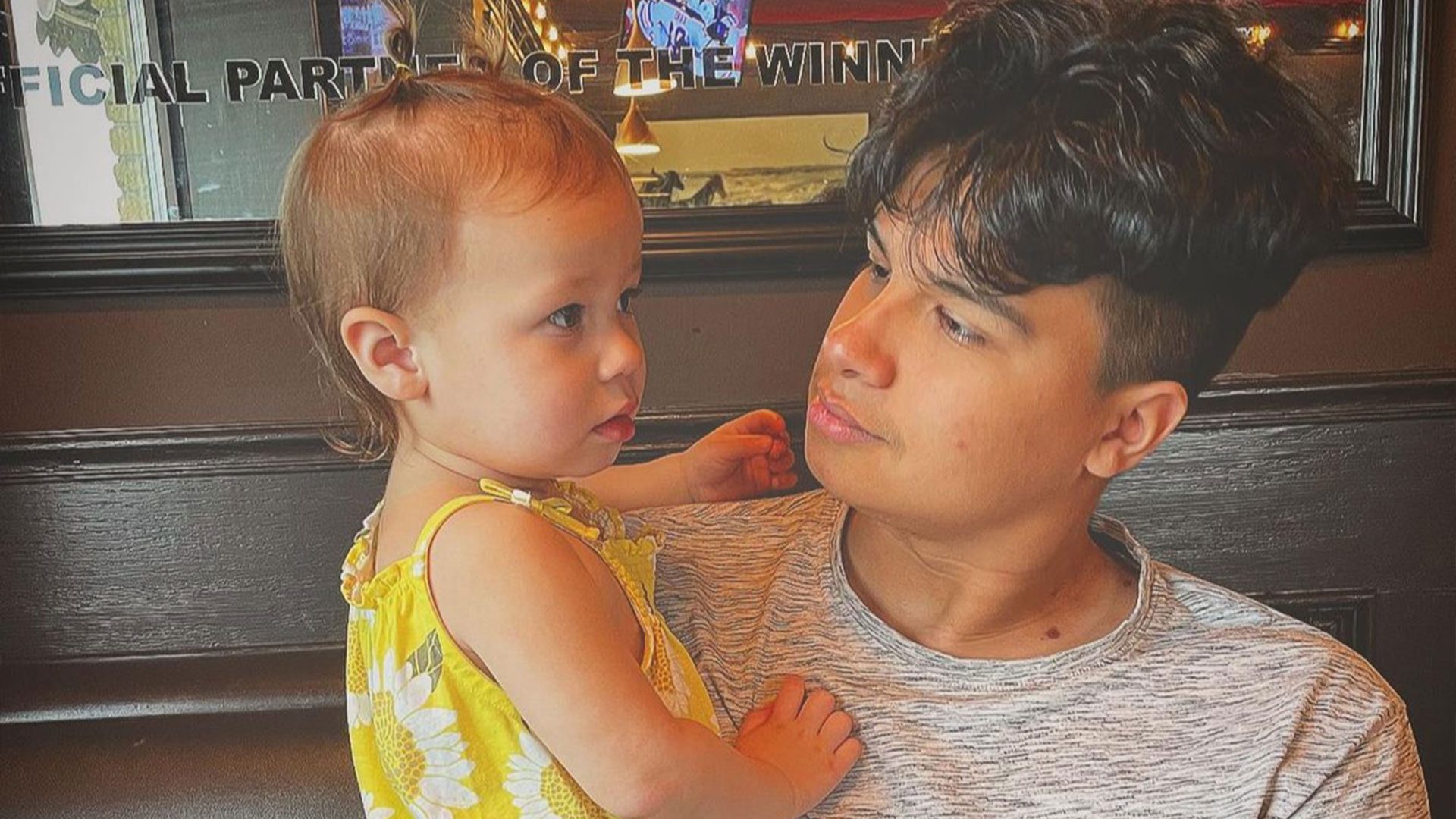
The last time Lori Bateman held her birth mother's hand. Photo courtesy Lori Bateman
The effects of residential school upended Lori Bateman’s life.
But it wasn’t her trauma.
It was her mother’s.
Yet she and her five siblings paid the price.
They were removed from their home on Sandy Bay First Nation in Manitoba for bad parenting to be raised by others.
Read More:
Proposed class-action lawsuit aims to compensate children of residential school survivors
Bateman, who was adopted by a Winnipeg family, has been trying “to put my (birth) family back together” ever since.
She reconnected with her birth mother and some siblings, but another brother and sister are nowhere to be found.
And, she’s seeing the ongoing effects of residential school trauma in the next generation of her family – her children.
“I thought I was breaking the cycle with my own kids – never having them in care (of the child welfare system) – I thought I was breaking it.
“Unfortunately, my daughter went through trauma, Now she’s brought that cycle back and now she has children in (foster) care,” Bateman says.
Experts say generational, historical and multi-generational trauma has been tied to major events like residential schools, wars, slavery, the Holocaust and natural disasters like flooding and earthquakes – even a pandemic.
It can also stem from personal trauma like child or domestic abuse, according to an explainer on WebMD, and experiences endured by specific cultural, racial, or ethnic groups.
The trauma is passed from a survivor to their descendants says WebMD, through symptoms that include shame, depression, severe reactions to stress and difficulty managing aggressive feelings.

It’s a phenomenon a lawyer in Saskatchewan feels deserves legal recognition and financial compensation.
“Anybody looking on knows two things,” says Tony Merchant, who has proposed a class-action lawsuit for inter-generational trauma related to residential schools, “an absence of parenting skills was taught in residential schools, it was the opposite of good parenting; it was terrible parenting.
“Second, residential schools taught violence as parenting, not communication and leading and teaching.”
While the ensuing emotional and behavioural reactions continuing to ripple through families, Merchant added.
“What we seek is compensation for the communities … because of the impact of people who were trained as children almost to be anti-social … and for the younger generations because of the harm that was done.”
Of course, it could take years for the lawsuit to be approved and possibly settled or adjudicated in court.
But Merchant feels it’s worth it – noting the class size could outstrip the hundreds of thousands of residential school, day school and ‘60s Scoop survivors already compensated through settlement agreements with Canada combined.
“In a sense, it’s everybody who’s First Nations, because they’re all impacted at the reserve level,” he explained, “but the compensation would just go to people who have a (family) line to somebody who was in residential school.”

Bateman says her trauma “carried on through my adult life where I struggled in every aspect of my life … You don’t feel you fit in being raised by a White family, it was a hard life.
“Once I met my (birth) mom, I felt like my life was complete. I really did.”
However, her adoptive sister’s life recently ended in tragedy.
Tammy Bateman of Roseau River First Nation was struck and killed by a police cruiser in Winnipeg on Sept. 4. Officers were returning a person to a nearby homeless encampment when they collided with the 34-year-old, who was staying at the camp.
“She was another inter-generational trauma victim,” Lori says of Tammy who was removed from her family and adopted by the Batemans.
“It was more of a struggle for her than it was for me, and I think that’s what led her to go to the streets because she didn’t feel like she fit in.”
Lori says she supports a class-action lawsuit.
“Any kind of class-action … money … will never bring back anything, but it can help us heal,” Lori says of the ability to afford counselling and other therapies.
“My mom lost all of her kids, she went through a life-long trauma, and then she died (earlier this year) having that in her heart.
“The whole thing really angers me,” Lori added. “It pisses me off and it’s not fair. And, unfortunately, for a lot of families, the vicious cycle is still continuing.”

Josh Nepinak, a First Nations advocate for youth in Winnipeg, says the years he spent as a ward of the province living in group homes was part of his family’s “harsh” residential school legacy.
“I was adopted as a minor by my grandmother who was a residential school survivor. I am now trying to help youth who face similar situations like myself.”
Nepinak would like to see Merchant expand the lawsuit to seek redress for the impact colonial systems like child welfare, justice, healthcare and residential schools have had on his people.
“I’m pushing for a class action that would (capture) the scope of the colonization impacts that have affected all survivors,” Nepinak says.
“The legacy of these colonial systems are long-standing and the survivors have been affected inter-generationally – and it’s continuing.
“We see it on the streets with our unhoused relatives.”
The 24-year-old father of a young daughter wants to break the “cycle of pain and the cycle of hurt” that’s in First Nations homes, workplaces and communities.
“In its simplest form, it’s all within us, this concept of inter-generational trauma,” he says.
“There needs to be supportive systems, and just overall redress from the Canadian institution/administration … that have put us through these colonial structures and have traumatized us.”










